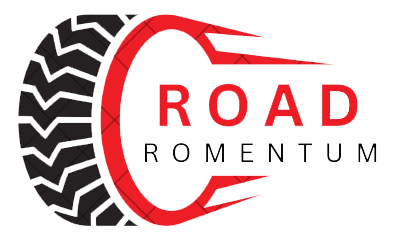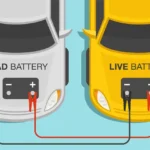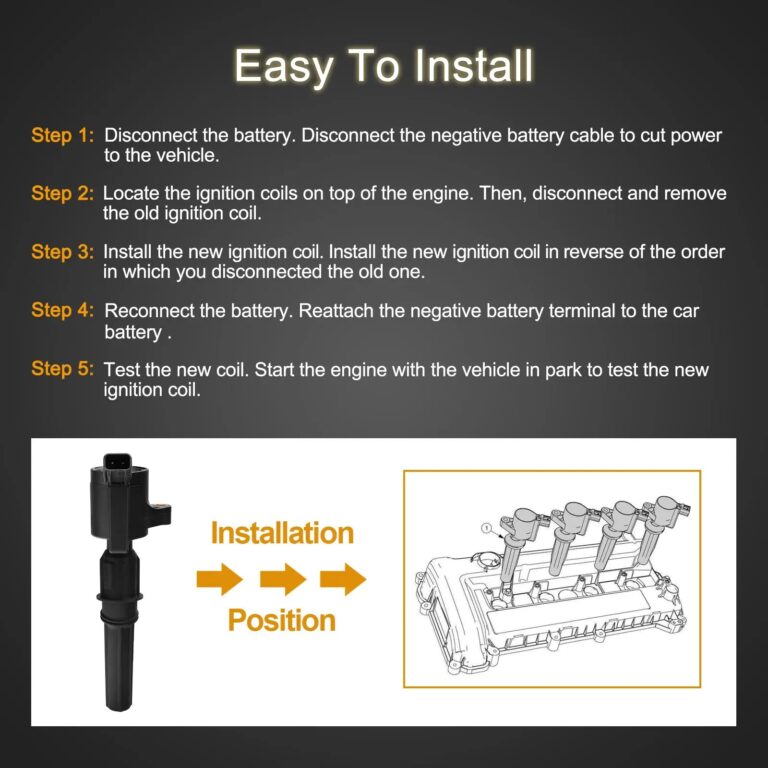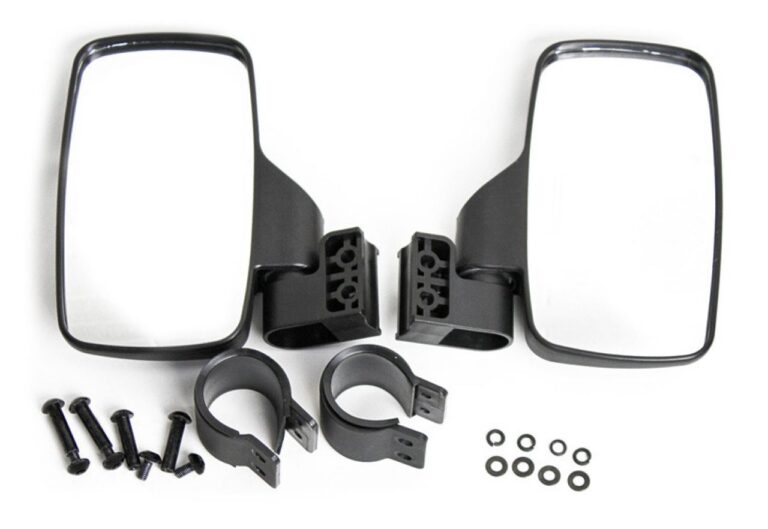What is Ford Eco Mode : How to Optimize Your Vehicle’s Efficiency
Ford Eco Mode is a feature in Ford vehicles that optimizes fuel efficiency. It adjusts the engine and transmission to conserve fuel.
Ford Eco Mode helps drivers save on fuel costs and reduce their environmental footprint. By intelligently managing vehicle operations, it promotes more efficient driving habits. This feature provides real-time feedback and encourages eco-friendly driving behavior. Through gentle acceleration and smooth braking, it maximizes fuel economy.
Ford Eco Mode is a valuable tool for both eco-conscious drivers and those seeking cost-effective driving solutions. With its intuitive technology, it facilitates a more sustainable and budget-friendly driving experience.
What Is Ford Eco Mode?
Ford Eco Mode is a feature designed to help drivers optimize their vehicle’s fuel efficiency. By understanding how Ford Eco Mode works and the benefits it offers, drivers can make more eco-friendly choices while driving.
How Does Ford Eco Mode Work?
Ford Eco Mode works by adjusting the vehicle’s engine and transmission settings to maximize fuel efficiency. When activated, it encourages drivers to adopt eco-friendly driving habits such as smoother acceleration and deceleration, maintaining a consistent speed, and avoiding excessive idling. This mode also provides real-time feedback to drivers, helping them make informed decisions to conserve fuel.
- Improved fuel efficiency: Ford Eco Mode can lead to significant fuel savings over time, reducing the environmental impact of driving.
- Extended vehicle lifespan: By promoting smoother driving behavior, Ford Eco Mode can help reduce wear and tear on the vehicle’s components, potentially extending its lifespan.
- Cost savings: With decreased fuel consumption, drivers can save money on fuel expenses, making Ford Eco Mode a financially advantageous feature.
Efficient Driving Techniques
Ford Eco Mode promotes efficient driving techniques that can not only reduce fuel consumption and emissions but also extend the lifespan of your vehicle. By adopting these techniques, you can contribute to a greener environment while saving on fuel costs. Here are some key efficient driving techniques recommended by Ford for maximizing the benefits of the Eco Mode feature:
Smooth Acceleration And Deceleration
Smooth acceleration and deceleration are crucial for efficient driving. Sudden, aggressive acceleration and braking not only lead to increased fuel consumption but also accelerate wear and tear on your vehicle. By maintaining smooth and gradual acceleration, you can optimize fuel efficiency and reduce stress on your vehicle’s components.
Proper Tire Maintenance
Proper tire maintenance is essential for maximizing fuel efficiency. Ensure that your tires are properly inflated and aligned. Low tire pressure can increase rolling resistance, requiring more fuel to maintain speed. Regularly check and maintain tire pressure to ensure optimal fuel economy.
Engine Maintenance Tips
Engine maintenance tips, such as regular oil changes and air filter replacements, are vital for maintaining optimal performance and fuel efficiency. Over time, engine components can become less efficient, impacting fuel consumption. Following the manufacturer’s recommended maintenance schedule can help sustain optimal engine performance and efficiency.
Utilizing Ford Eco Mode Features
Understanding how to make the most of Ford Eco Mode features can significantly contribute to a more efficient and eco-friendly driving experience. By leveraging the dashboard indicators and Eco Mode settings, drivers can optimize their vehicle’s performance while reducing fuel consumption and emissions. This section explores the key aspects of utilizing Ford Eco Mode features to maximize the benefits of this innovative technology.
Understanding The Dashboard Indicators
When activating Ford Eco Mode, drivers can access valuable information through the dashboard indicators. These indicators provide real-time feedback on driving habits and vehicle performance, empowering drivers to make informed decisions to improve fuel efficiency. The Eco Mode dashboard indicators typically include:
- Efficiency Gauge: This gauge displays the current fuel efficiency, allowing drivers to gauge the impact of their driving behavior on fuel consumption.
- Acceleration Feedback: Provides feedback on acceleration patterns, encouraging smoother and more gradual acceleration for optimal fuel economy.
- Braking Feedback: Offers insights into braking habits, promoting smooth and controlled braking to conserve energy and extend brake life.
Making The Most Of Eco Mode Settings
To fully harness the potential of Ford Eco Mode, drivers need to leverage the available settings effectively. By customizing Eco Mode preferences, drivers can tailor their vehicle’s performance to suit their driving style and environmental considerations. Key Eco Mode settings may include:
- Drive Mode Selection: Allows drivers to choose between different driving modes, such as Eco, Comfort, or Sport, to optimize performance based on personal preferences and road conditions.
- Cruise Control Optimization: Enables the vehicle to adjust cruise control operation to enhance fuel efficiency during highway driving.
- Idle Shutdown Timer: Automatically shuts down the engine after a specified idle duration, reducing unnecessary fuel consumption when the vehicle is stationary.
By making informed choices and utilizing these Eco Mode settings effectively, drivers can contribute to a more sustainable driving experience while lowering their overall environmental impact.

Importance Of Regular Maintenance
Regular maintenance is crucial to keep your vehicle running smoothly and efficiently. It helps prevent costly repairs, ensures optimal performance, and enhances safety on the road. When it comes to maximizing fuel efficiency and reducing environmental impact, maintaining your vehicle, including utilizing Ford Eco Mode, is essential.
Importance Of Regular Oil Changes
Regular oil changes are vital for the longevity and performance of your vehicle’s engine. Fresh oil lubricates the engine parts, reduces friction, and helps dissipate heat. This, in turn, prevents wear and tear, extends the engine’s lifespan, and improves fuel economy. By following the manufacturer’s recommended oil change schedule, you can maintain peak engine efficiency and support the operation of Eco Mode.
Impact Of Air Filter Maintenance
Maintaining the air filter is crucial for optimizing fuel efficiency and engine performance. A clogged or dirty air filter restricts the airflow to the engine, leading to inefficient combustion and increased fuel consumption. Regularly inspecting and replacing the air filter as per the vehicle’s maintenance schedule aids in sustaining Eco Mode functionality and promotes a cleaner, more fuel-efficient drive.
Fuel-saving Driving Habits
One of the key features of Ford Eco Mode is its ability to promote fuel-saving driving habits. By following certain driving practices, you can optimize your fuel efficiency and reduce your environmental impact. Here are some essential fuel-saving driving habits that can be facilitated by using Ford Eco Mode:
Proper Gear Selection
When driving in the city or on highways, proper gear selection plays a crucial role in maximizing fuel efficiency. Shifting up to higher gears at the right time can help in reducing fuel consumption. By staying in a lower gear for too long, the engine works harder, consuming more fuel. Utilizing the appropriate gear selection in the vehicle’s speed and load can significantly improve fuel economy.
Reducing Unnecessary Idling
Reducing unnecessary idling is another key aspect of fuel-saving driving habits. Idling for extended periods not only wastes fuel but also contributes to air pollution. Whether waiting at a traffic signal or parked, turning off the engine can help conserve fuel. Ford Eco Mode provides indicators and feedback to reduce idling time, promoting the habit of turning off the engine when stationary for an extended duration.
Reduced Carbon Emissions
Eco-driving And Energy Conservation
When it comes to saving on fuel consumption and reducing emissions, the Ford Eco Mode is a key driver assistance feature that promotes eco-driving and energy conservation. Eco Mode fosters a more mindful and efficient driving behavior, ultimately contributing to environmental sustainability and cost savings. In this section, we will delve into the benefits of eco-driving and how Ford Eco Mode supports energy conservation.
Conserving Energy While Driving
Eco-driving involves adopting a more fuel-efficient and environmentally conscious driving style. This approach aims to minimize fuel consumption, reduce CO2 emissions, and enhance overall vehicle efficiency. By maintaining steady speeds, anticipating traffic flow, and avoiding aggressive acceleration and braking, drivers can conserve energy and decrease their environmental footprint.
How Eco Mode Supports Energy Conservation
Ford Eco Mode, available in many Ford vehicles, is designed to assist drivers in achieving optimal fuel economy through real-time feedback and guidance. When activated, Eco Mode adjusts vehicle settings to promote fuel-efficient driving practices by displaying real-time data on fuel consumption and driving patterns. This encourages drivers to adjust their behavior for maximum efficiency, thereby conserving energy and reducing the depletion of natural resources.
Long-term Benefits Of Using Ford Eco Mode
Utilizing Ford Eco Mode goes beyond just saving fuel in the short term. It can have lasting positive effects on your vehicle’s performance and longevity. Here are the long-term benefits of using Ford Eco Mode:
Extended Vehicle Lifespan
Relying on Ford Eco Mode contributes to the overall health and lifespan of your vehicle. By optimizing the engine and transmission settings, it reduces wear and tear on critical components, leading to a longer lifespan for your vehicle. The smoother acceleration and reduced strain on the engine help in maintaining the overall health of your car for years to come.
Cost Savings On Fuel And Maintenance
Using Ford Eco Mode can lead to significant cost savings over time. The optimized settings result in improved fuel efficiency, reducing your overall fuel expenses. Additionally, by minimizing strain on the engine and transmission, it can help in lowering maintenance costs. With reduced wear and tear, you will likely need fewer repairs and replacements, further contributing to your long-term cost savings.
Frequently Asked Questions Of What Is Ford Eco Mode
What Is Ford Eco Mode?
Ford Eco Mode is a feature that optimizes fuel efficiency by adjusting engine and transmission response.
How Does Ford Eco Mode Work?
Ford Eco Mode works by smoothing out accelerator inputs and improving the shape ft the transmission for better fuel economy.
What Are The Benefits Of Using Ford Eco Mode?
Using Ford Eco Mode can result in improved fuel economy, reduced CO2 emissions, and lower fuel costs.
How Do I Activate Ford Eco Mode In My Ford Vehicle?
To activate Ford Eco Mode, simply press the “Eco” button on the console to engage the feature while driving.
Conclusion
Ford Eco Mode can significantly enhance fuel efficiency and reduce environmental impact. This innovative feature seamlessly adjusts the vehicle’s performance to maximize efficiency without compromising power. By incorporating Eco Mode into your driving habits, you can contribute to a greener future while enjoying the benefits of improved fuel economy.

















